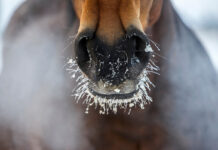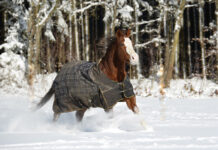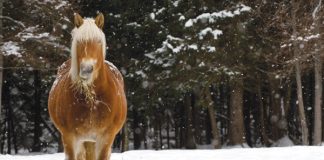 Before you head out to the barn for those long summer rides, make sure your horse is in tip-top health and care for all the fun you have planned.
Before you head out to the barn for those long summer rides, make sure your horse is in tip-top health and care for all the fun you have planned.
Skin Care
Fly Control
Flies are probably the worst thing bugging your horse during the summer months. Watery eyes are a common problem due to fly irritation. A fly mask can help. Make sure it fits properly (not too loose, not too tight) before turning your horse out in it.
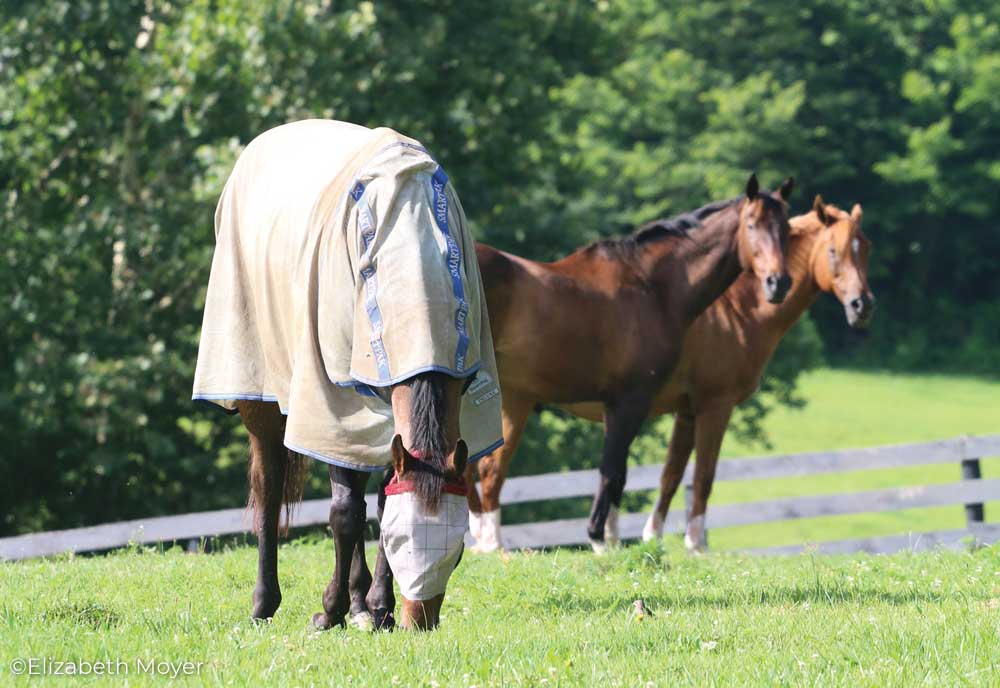
A flysheet can also be helpful for horses with really sensitive skin. This lightweight mesh blanket protects the horse’s coat from the sun and also reduces the number of bug bites he gets.
Using fly spray regularly is another way to keep flies from biting and pestering your horse as much. A thorough spray in the morning and evening is a good routine to get into. Depending on when and where you ride, you might want to spray when you saddle up, too. If you want your fly spray to last through a long ride where your horse is sweating, look for special “sweat-resistant” formulas. Otherwise, give your horse a fresh application of fly spray after riding.
Good manure management is another way to help decrease flies around the barn. This means keeping your horse’s stall as clean as possible and having the muck heap far away from the barn and the pasture. Picking up manure piles periodically in small paddocks and pastures helps decrease areas where flies feed and breed.
Hydration
Another key tip for summer horse care is that your horse loses a lot of water through sweating and breathing hard during summer exercise. Even if your horse is really hot after a ride, always let him drink. Keeping a hot horse from drinking can cause dehydration and muscle cramps and can even contribute to colic.
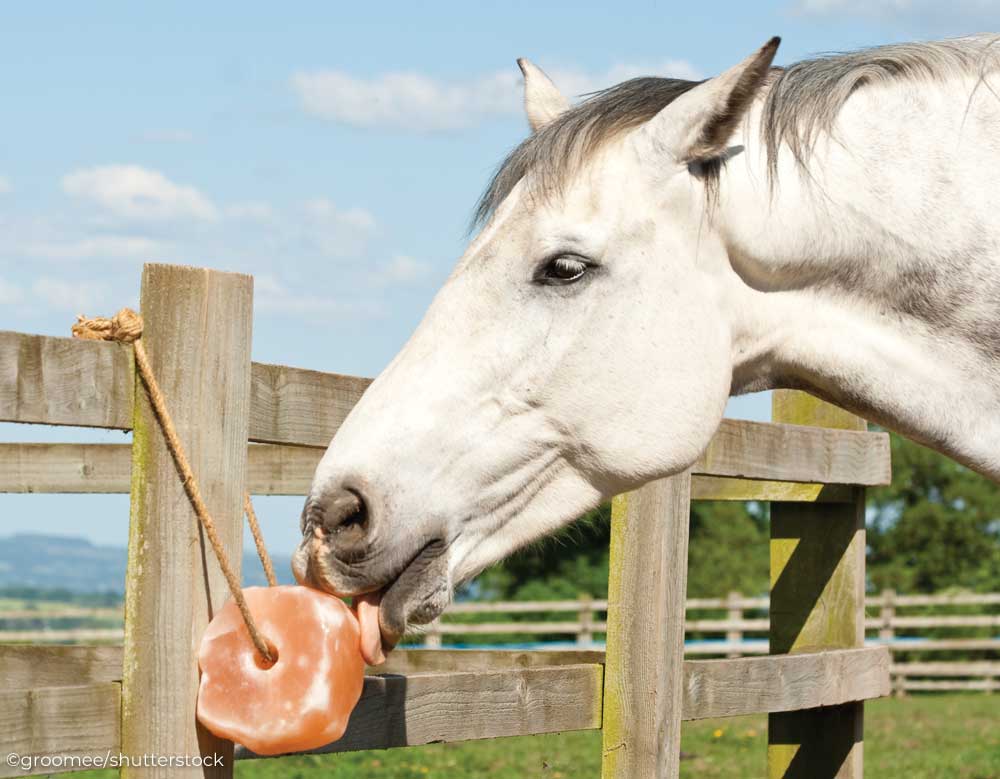
Always provide your horse with a salt block in his stall or field. Horses are able to self-regulate their needed salt intake. If he doesn’t like a plain white salt block, try a brown trace-mineral lick, loose salt, or a Himalayan salt rock.
Keeping Cool
For maximum comfort in the heat of the summer, try to make sure there is some shade available for your horse in the pasture. This may be in the form of a run-in shed or a nice big tree.
If your horse is stalled, he’ll be in the shade, but the air in a barn can quickly become stagnant and oppressive when hot. Have the barn as open as possible to encourage airflow.
If possible, try hanging a fan in his stall to help move the air—some horses find this so comfortable they take a nap with their faces right in front of it! Fans have an added bonus of preventing flies from landing on and biting your horse. Make sure to use a fan made for agricultural or outdoor use—these have a motor sealed against dust to reduce the risk of a fire.
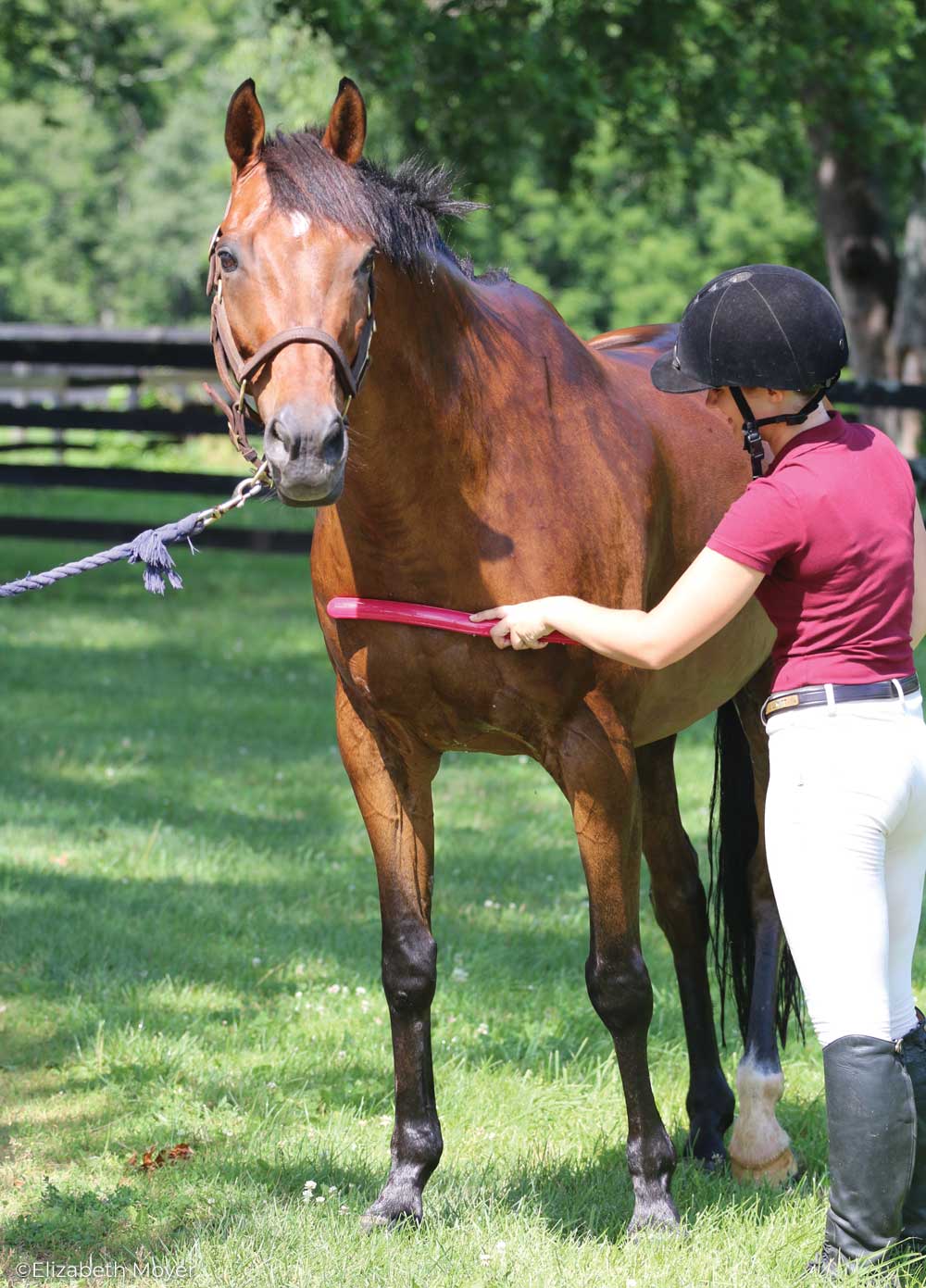
A quick bath after a hot ride is a welcome relief, too. This not only rinses off sweat, which can turn into a salty crust and cause skin irritation, but also brings down your horse’s body temperature.
Make sure you use a sweat scraper to remove the water, which heats up almost instantly and will insulate your horse instead of cooling him down. So sponge or spray with cool water, then scrape, and repeat. The process of evaporation as he dries will cool him down, as well.
Hoof care
The wet/dry cycles of summer can create a challenging environment for your horse’s hooves as they dry out and get wet again.
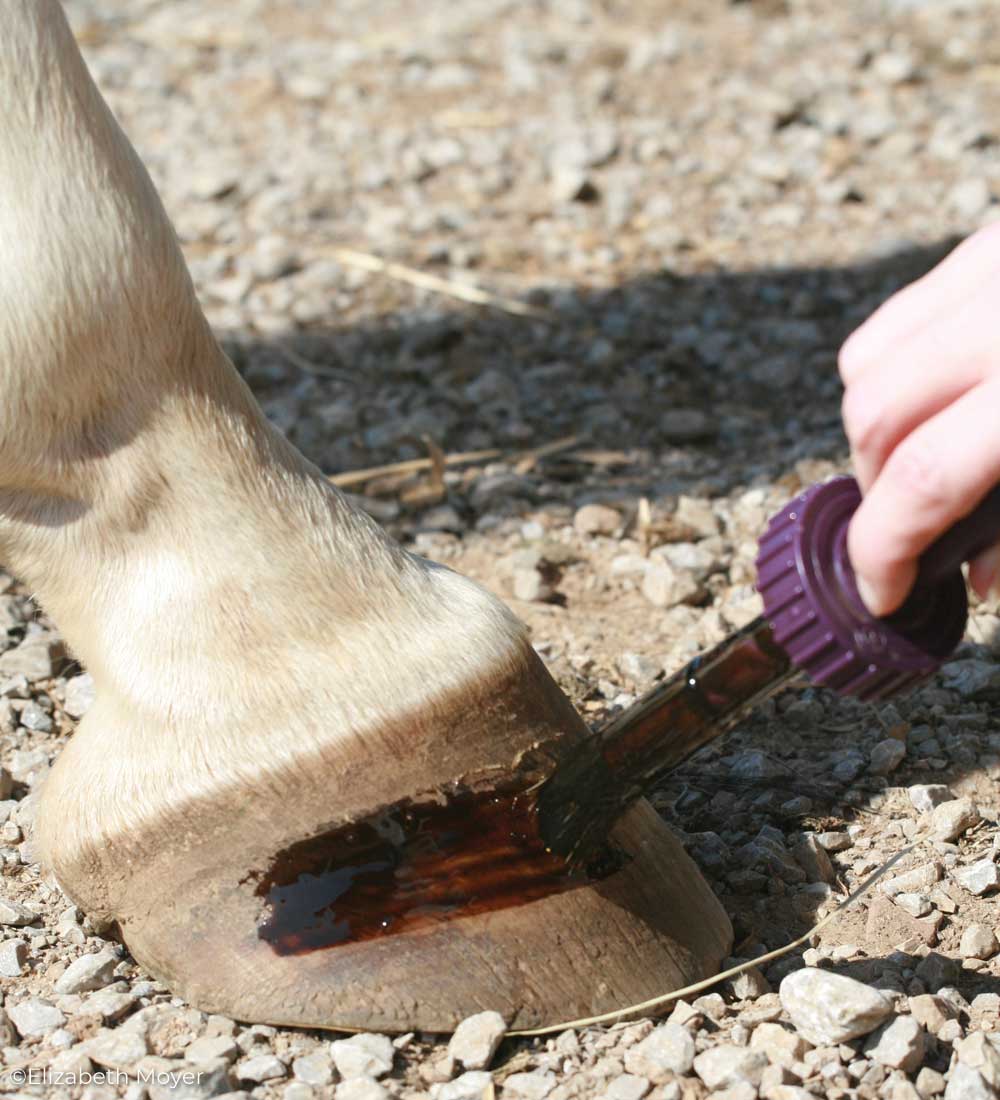
Regular farrier visits should be continued through the summer, and dry, cracked hooves might need some daily moisturizer to prevent chips and cracks. Try to avoid having your horse stand in a wet wash stall for long periods.
Alternating extreme wet and dry ground may also cause hoof abscesses as the hoof naturally expands and contracts in response to its immediate environment, creating tiny openings in the sole for bacteria to enter.
By keeping these summer health tips in mind, your horse should be ready to tackle any adventure you have planned this season.
This article originally appeared in the May/June 2019 issue of Young Rider magazine. Click here to subscribe!

